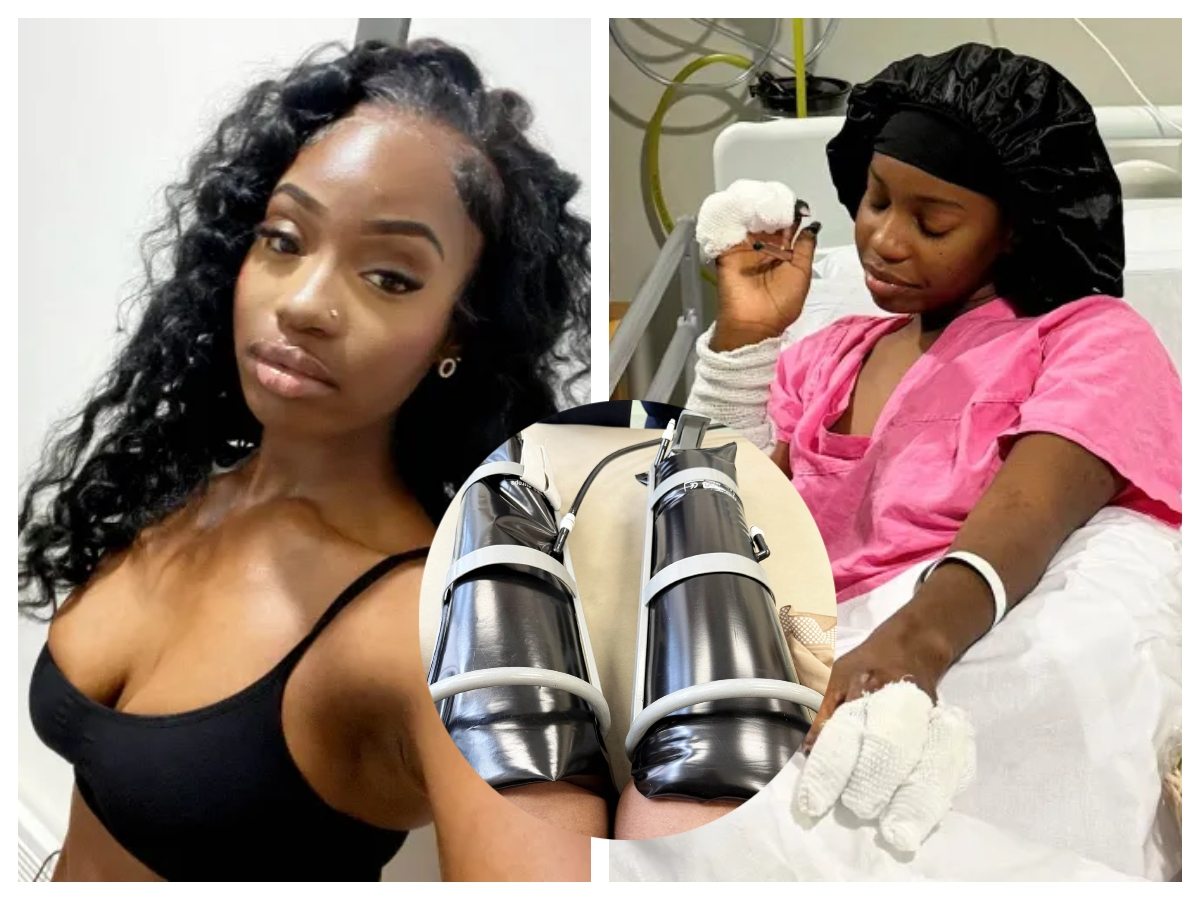When Ketia Moponda, a 19-year-old college student, arrived at De Montfort University in Leicester, England, in September 2024, she began feeling unwell after just eight days.
She ended up needing life-saving operations that led to her legs and fingers being amputated.
At first, she thought her cough was just the freshers’ flu, which many students get when the school year begins. But it turned out to be more serious.
It started one evening when Moponda, a marketing and advertising student, felt drowsy, took some medicine, and went to bed. The next day, she felt much worse. She reached out to her cousin and her best friend, telling her best friend that she felt like she was “going to die.” When she didn’t check in the following day, her friend notified the university.
Moponda was found unconscious in her dorm room and rushed to the ICU at Leicester Royal Infirmary hospital. Doctors diagnosed her with meningococcal septicaemia, a serious bacterial infection that led to bacterial meningitis and then sepsis.
She told SWNS, as reported by People, “I have no memory of any of this, but I’m lucky to be alive.”
When Moponda got to the hospital, she was put into a coma and woke up two days later. She said she struggled for a whole week, unable to see or talk.
She remarked, “It was a whole week before I started speaking.”
While she was being treated, her fingers and feet swelled up and hurt because of poor blood flow. She also got a flesh-eating infection on her backside, which was catered to with a skin graft from her thighs.
In December, her fingers were amputated at Queen Elizabeth Hospital in Birmingham. Then, in January, the college freshman had both legs amputated below the knee.
“Basically my legs had died because of a lack of blood going to them,” she said. “It was terrible.”
“I just kept crying all the time. I felt so hurt, it was killing my spirit,” she added.
Meningococcal disease is a bacterial infection spread through saliva or mucus. It can affect the meninges (membranes covering the brain and spinal cord) and blood. Survivors may experience long-term complications such as brain damage, kidney damage, limb loss, and nerve damage.
Moponda hopes her story will serve as a warning to others.
READ ALSO: Community holds $50K dream wedding for woman with rare terminal illness
Moponda, who loved being active and wanted to be a model, was really sad after her operation. She said, “I felt like my whole life had just begun and now I had to start all over again differently.”
After getting out of the hospital in February, she received her prosthetic lower legs in May. Now, she’s determined to relearn how to walk and won’t let anything stop her from overcoming her disability.
“This doesn’t make me less of a person,” Moponda said. “I am unapologetically me and I want to help others to feel confident about who they are and how they look.”










